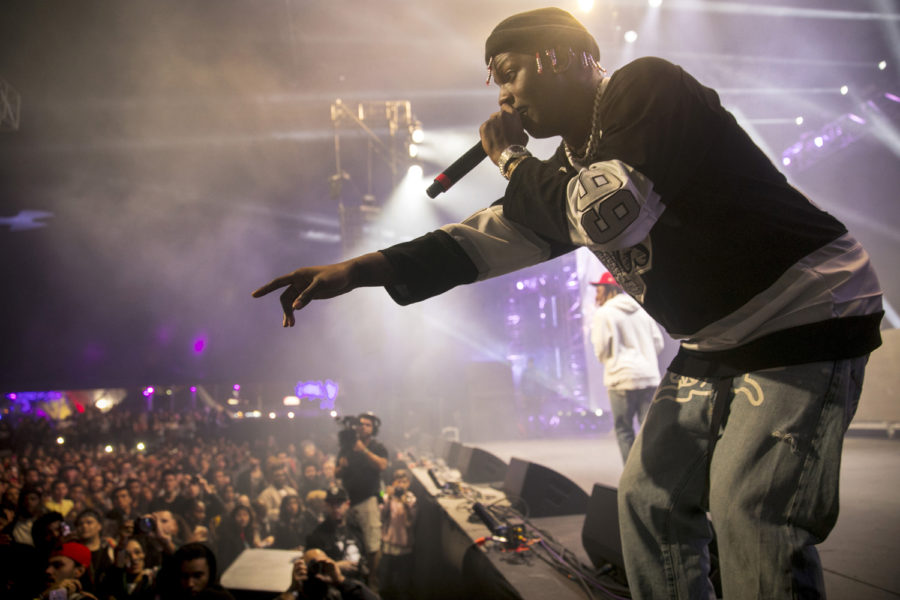So far, 2018 has seen several mainstream hip-hop acts release album sequels in an attempt to call back to a previous style and appeal to die-hard fans.
Atlanta trio Migos released the supersized monstrosity of an album, “Culture II,” to mixed reviews at the end of January. The insufferably preachy, Grammy-nominated Logic dropped the sequel to his 2016 mixtape, “Bobby Tarantino.” And beloved dread-headed Atlanta native Lil Yachty released the follow-up to 2016’s “Lil Boat” — “Lil Boat 2.”
Lil Yachty rose to internet stardom with the release of the candy-coated, melodic sounds of his 2016 mixtape “Lil Boat.” Tracks like “Minnesota” made the world fall in love with the fun-loving 18-year-old, scoring him a handful of big-name features on D.R.A.M.’s “Broccoli” and KYLE’s “iSpy,” as well as putting him on 2016’s XXL Freshman Class list — a crop of young artists deemed future hip-hop stars by XXL magazine.
In his early days as a star, Yachty, along with Lil Uzi Vert and 21 Savage, were trailblazers for a new brand of hip-hop — a style that focused less on lyrical dexterity and street cred and more on the sound of the voice and instrumental production. Critics compared this to a sort of punk renaissance for rap, stripping the genre of its density and bringing it to new heights of accessibility and popularity.
Since the release of “Lil Boat,” Yachty has been busy releasing music that leans more toward the Migos end of the spectrum than his initial bubblegum trap style. When Lil Yachty announced the release of “Lil Boat 2,” fans were excited, hoping to see a return to the sound that made this boat into a yacht.
Yachty revealed the track and feature list last Monday. The album would include Ugly God and Migos members Quavo and Offset, as well as Lil Pump, fresh from the wake of his smash hit “Gucci Gang.”
Despite high expectations, Yachty’s album is a far cry from the bubblegum sound heard on the album’s predecessor. Its instrumentals sound no better than those a SoundCloud rapper might pull off of YouTube even with superstar producer credits.
On tracks like “OOPS,” “TALK TO ME NICE” and “MICKEY,” Yachty’s vocal performances sound uninspired, and he is consistently outshined by his featured artists. Yachty’s solo tracks — devoid of the star power of Quavo or 2Chainz — are forgettable at best, leaving the listener with almost no impression at all.
After 16 bled-together tracks with few memorable songs among them, the album’s closer, “66,” provides a ray of hope in the desolation of this album.
The song features a punchy beat that complements Yachty’s mush-mouthed delivery flawlessly. While it does not quite achieve the quality of his previous glory, it does show that Lil Boat still has it in him to crank out a party hit from time to time.
The “Lil Boat” sequel’s quality could very well be a determining factor for the future of Lil Yachty’s career. Unfortunately, the album contained track after track of SoundCloud-esque trap beats and uninspired vocal performances. This album may be the final nail in the coffin for Yachty’s waning career.


